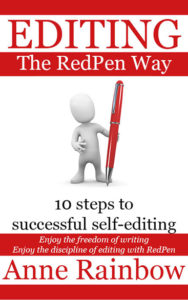
Erewash Open Short Story Competition
Erewash Open Short Story Competition
It was an honour to be asked to judge the Erewash Open Short Story Competition.
What does the short story judge have to do?
I received by email the shortlisted stories, fifteen in all. Here they are, in alphabetical order by title:
- Altara Drive
- Belonging
- Broken Mirrors
- Counting the Stones
- Dead Cert
- Fingal’s Cave
- Found and Lost
- Letting Go
- Lurch
- Pride Before the Fall
- Mr. Patel’s Power Drill
- The Dome
- The Widows of Slagdale
- Trick or Treat
- Wasted
The authors of these stories have been aware for some time that they made the shortlist. Today, they will still be wondering if they won a prize. I have now sent the results to the organisers who will announce the winners in due course.
My challenge was to read and decide which stories were the best: first, second, third, fourth and two highly commended.
Sounds easy? It’s not!
How did I proceed?
First, I read through each one, once, without my red pen in hand, and recorded at the end of each my initial reaction: a smiley face, or a question mark.
I then put the stories aside for 24 hours before reading them again. I knew I would need fresh eyes each time I read them. And, I decided that, in order to separate the stories,
I should ‘rank’ them according to ten benchmarks:
- TITLE
Did it fit the story? Could I think of a better one? - OPENING PARAGRAPH
Did it hook the reader? Did the story start at the best place? Could the start be improved by re-ordering the sentences? - ENDING
How well did the story come to a close? Was there any link to how the story started? Was there a sense of a character completing their arc, and/or a situation being resolved? - CHARACTERS
At what point did the reader become aware of each character’s existence, and when did each character’s name appear? How well were the characters drawn? Could any characters be written out of the story? - PLOT
Was there a clear plot? Did the plot carry the characters along their arc? - STRUCTURE
Was there a clear beginning, middle, and end to the story, with various fictional modes (eg dialogue versus exposition) in balance? - PACE
Did the story move along at a sensible pace? Did it drag? - ENGAGEMENT
What person/tense had been used? Would a different choice have worked better?
To what extent were my senses engaged while reading the story? Was I affected emotionally by the story? - LANGUAGE
To what extent was imagery used? How well was dialogue portrayed (ie through speech tags)? How well were the characters distinguished through their dialogue? - ACCURACY
How much would more editing of spelling and grammar be needed to make the manuscript ‘clean’?
For each one, I read each story again – so yes, I read each story ten times!
And then, for each benchmark, I grouped them: poor / okay / good / excellent … and allocated marks: 0 / 1 / 2 / 3 …
It then became an arithmetical exercise to identify the top six. However, having been an examiner for many years (albeit of IT exams), I then went through each of the top eight (not six) to make sure I was happy with my final ordering.
Is it fun being a judge?
Yes … Reading through my printouts of the shortlisted stories this past fortnight has been a delight. As I look at the pile of scripts this morning, I can see the amount of work that has gone into every one.
I can also see – from my own scribbles – just how much more editing is needed before any of these stories would be acceptable for publication, were they to be submitted to a magazine, for example.
It reminded me of a time more than ten years ago when I won first prize for a short story competition organised by a local writers’ group. The lady who came second was not happy – but, on looking at her script, I could see that I won because my story had been edited until it shone. Hers may be been a better story, but mine pipped her at the post.
In the Erewash competition, the marks awarded for my benchmark item 10 became immaterial – other aspects of the storytelling had already distanced the top six from the rest. However, I started RedPen ten years ago precisely to help writers like those who entered the Erewash Open Short Story Competition …
If you plan to submit a story to a competition or to a magazine, please put your RedPen to good use!
If you need help with your editing, join RedPen. It’s free …
Or better still, buy the book!
Trying to juggle too many projects?
Or just need help to achieve one important goal?
Book an appointment for a 30-minute call to discuss
how RedPen Mentoring might work for you.
Let 2018 be the year you achieve your dreams!




No Comments